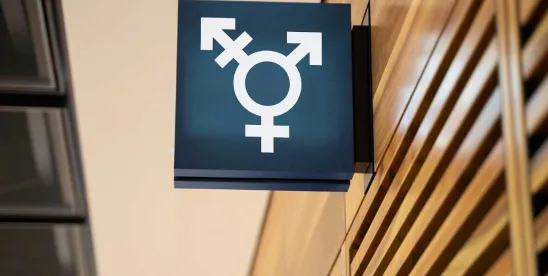A Tennessee law prevents changing one’s designation of sex on his or her birth certificate, even if that person has changed gender identity on other official documents as in life. In Gore v. Lee, the Sixth Circuit affirmed this law’s constitutionality. This decision is best understood in tandem with another gender-rights case from Tennessee: L.W. v. Skrmetti. Last year in L.W., the court upheld Tennessee’s limitation on minors’ ability to obtain sex-transition intervention. The same divided panel decided both cases—with Chief Judge Sutton writing, Judge Thapar joining, and Judge White dissenting.
Let’s unpack both decisions, beginning with the recent birth-certificates case. All the States record data about their newly born citizens. Although Tennessee does not condone changes to the sex assignment on a birth certificate (save for recording errors), the court surveyed other States that allow it on varying conditions. In this Circuit, for example, Kentucky requires surgery first, Ohio requires a medical declaration, and Michigan permits birth certificate amendment “based solely on applicants’ declaration of their current gender identity.”
Noting the States’ varied approaches to the issue, the court found no substantive “right to a birth certificate conforming to one’s gender identity.” The court applied Washington v. Glucksberg’s framework, where an unenumerated right must be “‘deeply rooted’ in our history and ‘implicit in the concept of ordered liberty’” to garner substantive due process protection. As for the Equal Protection Clause, the court held that the Tennessee birth certificate law does not discriminate based on sex but rather “treats the sexes equally … , even if sex ‘factors into’ the law’s application.” The court would not treat transgender status as a “suspect class” for the first time, and law withstood rational-basis review. “Tennessee did not exceed [its] discretion in distinguishing biological sex from gender identity in its birth certificate records.”
Chief Judge Sutton concluded in characteristic form: “policymaking in this area through democracy rather than through federal judges is far more likely to lead to stable settlements than efforts to update the meaning of the Fourteenth Amendment.” Because the “Constitution does not speak directly to this evolving issue in our society,” he added, the States may decide.
L.W. v. Skrmetti laid the groundwork for Gore. In a challenge to Tennessee’s “ban [on] certain medical treatments for minors” to transition gender, Chief Judge Sutton framed the case as whether the Constitution transfers decisional authority over an ongoing and “novel topic of medical debate” from “the democratic process” to “life-tenured federal judges,” in the context of children, no less. That framing spelled trouble for the challengers.
Resemblant to the analysis in Gore, the “key to the constitutionality of [the] laws,” according to the court, was “that they do not disadvantage ‘persons’ based on their sex” or any other immutable characteristic. Same as Gore, the court would not assign transgender individuals to a suspect class due heightened protection under the Equal Protection Clause. And considering the long tradition of governments regulating the medical profession, without a pedigree of judicial intervention, the court found no due-process right of minors to obtain the restricted medical procedures. Nor could the court locate a due-process right of parents to negate the Tennessee law.
As this post runs long, much more could be said. A few notes to wrap up: (1) The Supreme Court has granted review of L.W., and we anticipate an argument later this year with a decision to come, realistically, next June; (2) Judge White wrote thorough dissents in both cases, finding unjustified sex- and identity- based discrimination; (3) the challengers in both cases pressed arguments based on Bostock v. Clayton County—the Supreme Court’s Title VII decision about discrimination against sexuality and gender identity—but the majority would not import Bostock’s statutory analysis “into the Fourteenth Amendment.”
A final post-script: Before the ink could dry in Gore, yet another divided panel of the Sixth Circuit decided yet another culturally salient case from Tennessee. This case, Friends of George v. Mulroy, featured a First Amendment challenge to the Tennessee law that bans drag shows performed in public or around minors. The district court enjoined the law’s enforcement, but the Sixth Circuit reversed, unable to find standing for the organizational plaintiff that did not itself perform drag shows. Judge Mathis dissented. The Tennessee legislature has kept the Sixth Circuit busy; we are doing our best to keep up.




 />i
/>i

